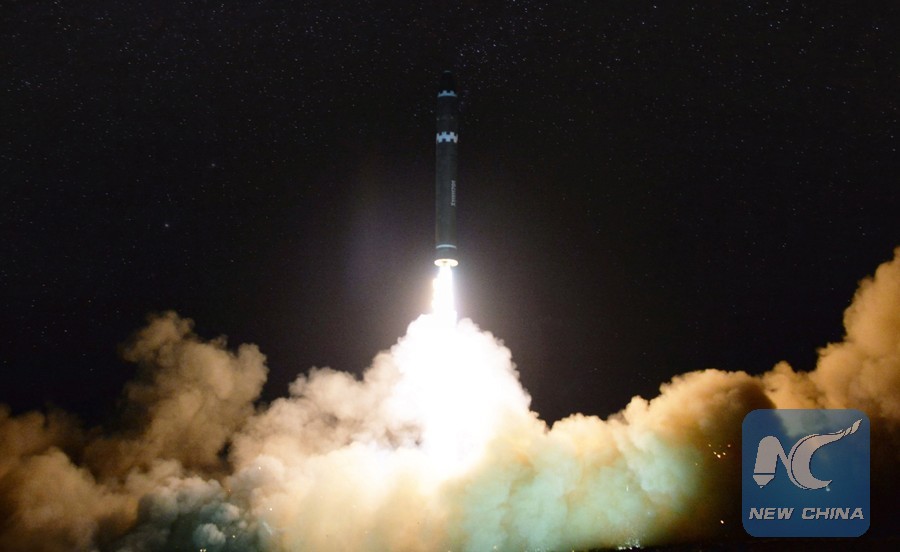
Photo provided by Korean Central News Agency (KCNA) on Nov. 30, 2017 shows the test-firing of an Intercontinental Ballistic Missile on Nov. 29, 2017. The Democratic People's Republic of Korea (DPRK) successfully test-fired a newly developed Intercontinental Ballistic Missile (ICBM), the country's Korean Central Television reported. (Xinhua/KCNA)
UNITED NATIONS, Dec. 21 (Xinhua) -- The United Nations Security Council is expected to vote on a new draft resolution that would tighten sanctions against the Democratic People's Republic of Korea (DPRK) in response to its ballistic missile launch last month.
A Security Council meeting has been scheduled for Friday at 1:00 p.m. EST (1800 GMT). The U.S.-drafted resolution was circulated among council members on Thursday.
The draft, seen by Xinhua, seeks to ban nearly 90 percent of refined petroleum product exports, including diesel and kerosene, to the DPRK, setting a ceiling of 500,000 barrels a year. It also caps crude oil exports to the DPRK at 4 million barrels a year.
The draft also demands the repatriation of overseas DPRK workers within 12 months.
In addition, the draft resolution bans DPRK exports of food products, machinery, electrical equipment, earth and stone, including magnesite and magnesia, wood and vessels. It bans the supply of industrial equipment, machinery, transportation vehicles, and industrial metals to the DPRK.
The draft also provides for measures to stop ships illegally providing oil to the DPRK through ship-to-ship transfers and smuggling DPRK coal and other prohibited commodities by sea.
UN member states shall seize, inspect, freeze and impound any vessel in its territorial waters, if the member state has reasonable grounds to believe that the vessel was involved in activities, or the transport of items, prohibited by Security Council resolutions, reads the text.
The draft resolution puts 19 new DPRK citizens, most of them bank officials, and the Ministry of the People's Armed Forces on a list for a global asset freeze and travel ban.
Pyongyang successfully test-fired a newly developed intercontinental ballistic missile in late November, drawing strong condemnation from the international community.

